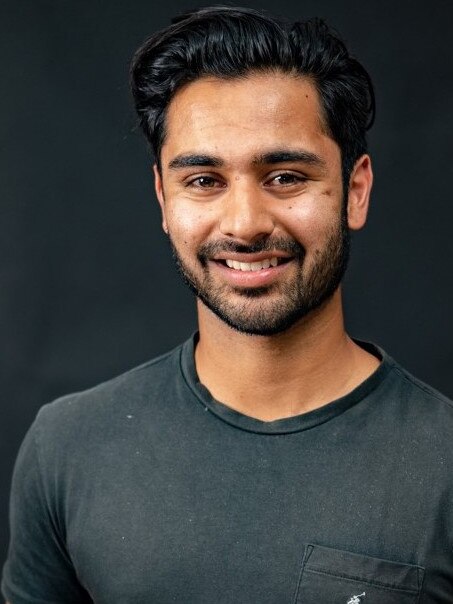Why Sydney and not San Francisco is where the future of technology lies

As a 20-something wanting to build a career in start-ups, I’ve always had a naive optimism about changing the world.
First, it was becoming a lawyer. Then it was joining a not-for-profit. For a moment, the World Bank.
But then, like many other young people today, I was drawn to the allure of start-ups.
I inhaled books and podcasts about building great companies. Silicon Valley greats like Tim Ferris, Peter Thiel and Marc Andreessen enchanted me. Their thinking married the worlds of science, politics, philosophy, economics and for the first time my intellectual curiosities were satisfied.
Yet what spoke to me most about Silicon Valley was its bursting ambition. The desire to challenge the status quo, and against all odds build something completely new to the world. My naive optimism had found a home.
It was a quote from Silicon Valley great Paul Graham that inspired me to pack up my bags and move to San Francisco. “Great cities attract ambitious people. You can sense it when you walk around one. In a hundred subtle ways, the city sends you a message: you could do more; you should try harder.”
But Covid had other plans for me. I didn’t get to make my move to San Francisco. But for that I’m surprisingly grateful. Experiencing the Australian start-up ecosystem these past three years has given me the conviction that there is something special in the air.
Here. In Australia.

I know that’s a big statement to make. To check my bias I even visited Silicon Valley recently.
Still, I returned more convinced than ever that I wanted to stay in Sydney as we move into what will likely become the breakout era of technology in Australia.
Why did I give up moving to the world’s Mecca of start-ups and innovation? Three things make any great start-up ecosystem: talent, capital and communities. We now have all of them down under.
For the first time, Australian start-ups attract our nation’s best and brightest talent. Historically, high-achieving students have chased the prestige of industries like law, consulting and investment banking.
But the shine of these industries has started to fade, with the next generation setting their sights on opportunities within our start-up ecosystem.
Opportunities to drive change and solve some of the most pressing problems facing the world.
Opportunities for real responsibility, exponential career growth, and skin in the game thanks to most start-ups offering equity stakes in the business. And with technology jobs now paying 62 per cent more than the median Australian job, young talent no longer has to survive on cans of tuna to work at a start-up.
A friend of mine is just one of many young people I know who has chosen this path. Two years ago he turned down a graduate job at a top tier investment bank to work at a fast growing start-up. Today, he leads a team of 12 and actually gets to sleep.
There’s also the opportunity to learn from the best. As a nation we boast over 27 unicorns. This stat is no mere vanity metric. It means there’s now a wealth of experienced operators on the ground who have seen the journey of a high growth start-up. More so, if any of these operators had significant equity stakes in an Australian unicorn, they likely now have the financial means and risk profile to start or join an early stage company. This is something that plays out in later stage ecosystems like Silicon Valley, Singapore or Tel Aviv, where mature technology companies are important contributors to local talent pools.
It’s no secret vibrant start-up ecosystems require the availability of capital. While Australia’s iconic tech companies like Atlassian and Canva started when there was limited venture capital in Australia, this is no longer the case. Just three years ago, in 2019, there was $1.9bn of start-up funding in Australia. Last year funding reached $10.1bn. For the first time our local founders no longer need to reach for the deep pockets of international venture funds. They can raise money at home.
The big three venture funds in Australia have a combined $2.5bn waiting to be invested in the companies of tomorrow. With that much dry powder ready there are direct incentives for these funds to inspire more Australians to start companies. This is leading to the creation of programs encouraging diverse talent to consider careers in start-ups. To date Australia is one of the most capital efficient producers of unicorns in the world. With more capital available there are likely a whole generation of transformative companies on the horizon.
Talent and capital are only as strong as the communities that bind them. Prior to Covid these communities only existed in hubs like San Francisco. Now anyone interested in technology and innovation has a home in Australia. Thousands of young people who once existed in isolation are being brought together in start-up communities like Early Work and Next Chapter. It’s hard to walk around Surry Hills without bumping into a group of angel investors, product managers or tech geeks.
For the first time there are Australian communities that serve every niche of start-ups. With world-class talent, capital availability and vibrant start-up communities being formed in Australia, I believe we are on the precipice of a start-up explosion.
I decided not to relocate to Silicon Valley and stay to play a part in Australia’s emerging story.
Sachin Shah is an investor at AirTree Ventures and the host of The Sachin and Adam Show.



Staying in Sydney and not moving to San Francisco was the best decision I ever made.